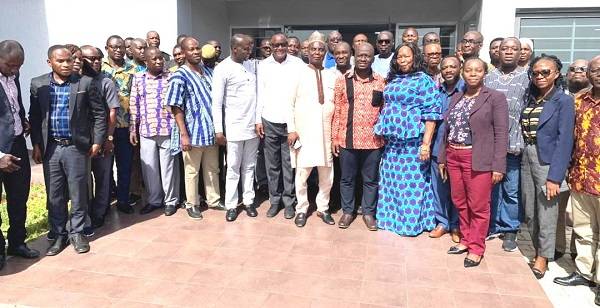
A day’s stakeholder consultation on draft National Electric Vehicle Policy for the transport sector has been held in Bolgatanga in the Upper East Region, with a call on Ghanaians to demonstrate strong commitment towards the realisation of the policy.
The policy is in line with the Paris Agreement, which seeks to transition to net-zero-emission in line with climate mitigation and efficient use of energy.
The Deputy Minister for Transport, Frederick Obeng Adom, who delivered a keynote address on behalf of the Minister, Kwaku Ofori Asiamah, at the forum, said there was no denial of the fact that the country’s high dependency on fossil fuels, in addition to other factors, such as traffic congestion, had resulted in the transport sector becoming a net emitter of greenhouse gases.
According to him, experts had come out with a research whose findings averred that emissions from vehicles were not only bad to the planet, but had dire ramifications on the health of the people, as air pollution was to blame partially for cases of asthma, bronchitis, and so forth, which brought about premature deaths.
He, therefore, tasked the citizenry to commit to the cause of government’s decision to switch from fossil fuel cars to electric vehicles, as part of its efforts to achieve a net-zero emissions by 2050.
Explaining the need for each and everyone to work assiduously in their own ways to help government fast track the implementation of the electric vehicle policy, he noted, “At the moment, countries around the world are taking action to reduce their carbon footprint in response to the Paris Climate Accord”.
The Deputy Minister for Energy, Herbert Krapa, on his part, said, with the ambitious target of achieving the renewable energy commitment under the Paris Agreement, Ghana would not only be spearheading the drive for electric vehicles, but would also aspire to lead the African continent into clean and sustainable energy production and utilisation.
The Minister whose address was read for him, added that the recent report of the Intergovernmental Panel on Climate Change (IPCC) made it obvious that the world had fewer than 10 years to switch to renewable energy to avoid catastrophic climate change.
“It is not so much a lifestyle choice, but a necessity for survival for everyone to switch to electric vehicles, as part of measures to fight global warming,” he stressed.
According to him, switching to electric vehicles was not only going to address the issue of global warming, but was economical as compared to fossil-fueled cars.
The Drive Electric initiative, Mr Krapa said, would help gallop the electricity intake and increase the much-needed demand, as the country was obsessed with eliminating the payment of high-capacity charges, while meeting climate targets.






